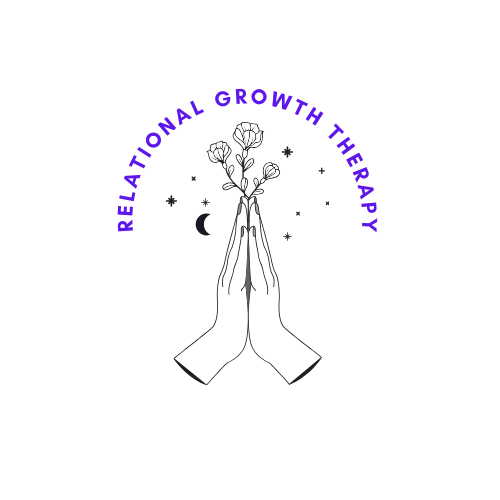The "No" vs. "Yes" Voice: How Childhood Messages Shape Your Relationships Today
Have you ever found yourself reacting strongly to a small comment from your partner? Or doubting yourself in relationships without fully understanding why?
Often, the way we respond in adult relationships is connected to the emotional messages we absorbed early in life. One subtle but powerful influence is the balance of "No" vs. "Yes" messages we received as children.
What Are "No" and "Yes" Messages?
"No" messages are not just the word "no." They include all the critical, shaming, or discouraging messages we hear in both words and tone.
→ Don’t do that.
→ You’re too sensitive.
→ That’s not good enough."Yes" messages are affirming, encouraging words that build a sense of worth and possibility.
→ I believe in you.
→ You can try.
→ You matter.
The Research
One of the most well-known studies on early language exposure is the Hart & Risley study, Meaningful Differences in the Everyday Experience of Young American Children (1995). Their research showed that by age 4, children from lower-income families had heard 125,000 more prohibitions than affirmations, a staggering imbalance that can affect how a child comes to see themselves and others.
More recent research using LENA (Language Environment Analysis) technology supports this finding. In many home environments, children hear far more prohibitions than affirmations, especially in toddler years when boundary-setting is frequent.
While some "No" is necessary to create safe limits, the overall tone of our environment, whether the emotional climate is encouraging or discouraging, helps shape what psychologists call our internal working models of self and others (Bowlby, Attachment and Loss).
Why It Matters in Adult Relationships
If the "No" voice was dominant in your early life, you may now find that:
You’re quick to self-criticize when things go wrong
You expect rejection or criticism from your partner
You struggle to trust positive feedback
You feel anxious about expressing your needs or emotions
When both partners in a relationship carry these patterns, it can create painful cycles of misunderstanding, withdrawal, or conflict, even when love and commitment are present.
The Science of Positive-to-Negative Interactions
This dynamic isn’t just about childhood, it plays out powerfully in adult relationships.
Dr. John Gottman’s research has shown that thriving couples maintain a ratio of at least 5 positive interactions for every 1 negative interaction during conflict conversations, and even higher ratios during everyday interactions.
Couples whose relational patterns mirror the imbalance of too many “No” experiences (criticism, defensiveness, contempt, stonewalling) over “Yes” experiences (validation, appreciation, encouragement, curiosity) are more likely to experience disconnection and conflict.
In other words: the emotional tone of your relationship, like the one you absorbed as a child, still powerfully shapes your connection with your partner today.
In Therapy, I Often See:
Individuals with a tendency toward an anxious attachment style who protest or cling when they sense rejection, possibly shaped by an early "No" heavy environment.
Individuals with a a tendency toward an avoidant style who struggle to trust connection or express vulnerable feelings, possibly linked to a lack of affirming "Yes" messages early in life.
Couples where both partners’ old patterns clash, leaving both feeling unseen and misunderstood.
The Good News: You Can Re-Author Your Story
Becoming aware of these old voices is a powerful first step. Therapy can help people to:
Identify the "No" and "Yes" messages they carry.
Recognize when the old "No" voice is influencing current interactions.
Strengthen the inner "Yes" voice so that new patterns of connection can emerge.
Create a more supportive, responsive dynamic with their partner.
When couples and individuals begin to shift these patterns, it often leads to greater self-compassion, more authentic connection, and more resilient relationships.
Ready to Explore Your Story?
If you recognize yourself in this post, if you’re curious about how early messages might be shaping your relationships today, I would love to support you on a journey to growth.
At Relational Growth Therapy, I work with couples, families, and individuals to help them move beyond old relational patterns and toward deeper trust, connection, and hope.
Schedule a free consultation today and let’s explore what’s possible.
References
Hart, B., & Risley, T. R. (1995). Meaningful Differences in the Everyday Experience of Young American Children. Paul H Brookes Publishing.
https://psycnet.apa.org/record/1995-98773-000LENA Foundation. (2020). Research findings on the early language environment.
https://www.lena.org/interaction-in-early-childhood-education/Bowlby, J. (1969). Attachment and Loss, Vol. 1: Attachment. Basic Books.
https://www.amazon.com/Attachment-Loss-Basic-Books-Classics-dp-0465005438/dp/0465005438/ref=dp_ob_title_bkThe Gottman Institute. (n.d.). The Magic Relationship Ratio, According to Science.
https://www.gottman.com/blog/the-magic-relationship-ratio-according-science/
